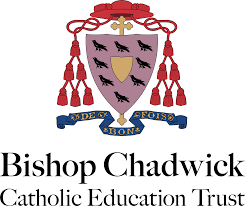We will be adding our latest approach to the EYFS curriculum as soon as possible.
Our curriculum starting point is to focus on children’s prior learning, both from previous settings and their experiences at home. We work in partnership with parents, carers and other settings to provide the best possible start at St James Catholic Primary School, ensuring each individual reaches their full potential from their various starting points. The curriculum has been designed to enable children to succeed through cooperative and collaborative learning principles. As such, there is a strong emphasis on the Prime Areas of learning; Personal, Social and Emotional Development and Communication and Language. Our enabling environments and warm, skilful adult interactions support the children as they begin to link learning to their play and exploration right from the start. We believe that high level engagement ensures high level attainment. We therefore provide an engaging curriculum that maximises opportunities for meaningful cross-curricular links and learning experiences, as well as promoting the unique child by offering extended periods of play and sustained thinking. We following children’s interests and ideas to foster a lifelong love of learning both in and outside of school. By the end of the Reception year, our intent is to ensure that all children make at least good progress from their starting points are equipped with the skills and knowledge to have a smooth transition into Year 1. Each half term we introduce a new theme to provide inspiration for learning, whilst providing the flexibility for children to follow their own interests and ideas. Children learn through a balance of child-initiated and adult-directed activities. The timetable is carefully structured so that children have directed teaching during the day. The timetable changes throughout the year to take into consideration the changing needs of the children. These sessions are followed by focused group work. This means the teacher can systematically check for understanding, identify and respond to misconceptions quickly and provide real-time verbal feedback which results in a strong impact on the acquisition of new learning. Children are provided with plenty of time to engage in ‘exploration’ throughout the variety of experiences carefully planned to engage and challenge them in the provision. The curriculum is planned for both inside and outside the classroom and importance is given to learning in both areas. Reading is at the heart of our curriculum and our aim is to encourage a love of reading right from the start. We follow the Sounds Write programme in phonics to ensure consistency across the school. Children are encouraged to read at home and are listened to regularly in school. They are given books that match their phonic knowledge in order for them to apply their learning with the aim of becoming successful, confident and fluent readers. Within the Sounds Write programme children are encouraged to write from day one. This develops emergent writing skills and progresses onto writing labels, captions and sentences. In Reception, we follow the White Rose Maths Scheme of work which is divided into 3 weekly units. High quality learning environments and meaningful interactions with adults, support children in developing mathematical thinking and discussion. Pupils learn through games and tasks using concrete manipulatives and pictorial structures and representations which are then rehearsed applied and recorded. Our wider curriculum is taught through the learning areas; ‘Understanding of the World’ and ‘Expressive Arts and Design.’ The EYFS team have a good understanding of how the ELG’s feed into the National Curriculum through our robust planning and CPD opportunities. In reverse, subject leaders throughout the school are also aware of the key ELG’s that link to each foundation subject and the progression of the subject. Prior to children starting, staff spend time speaking to the child’s parents, previous settings to gain an understanding of the whole child and where they are at. During the first half term in Reception, all staff use ongoing assessments, observations and conversations with the child to develop a baseline assessment. This identifies each individual’s starting points in all areas so we can plan experiences to ensure progress. This assessment focuses on ‘Language, Communication and Literacy,’ and ‘Mathematics.’ The purpose of this is to show the progress children make from Reception until the end of KS2. All ongoing observations are used to inform weekly planning and identify children’s next steps. This formative assessment does not involve prolonged periods of time away from the children and excessive paper work. Practitioners draw on their knowledge of the child and their own expert professional judgements through discussions with other practitioners, photographs and physical examples such as a child’s drawing. Some observations are uploaded using Tapestry and shared with the supporting parents and carers. Phonic assessments are carried out every half term to quickly identify pupils that are not making expected progress. Assessments are completed three times per year at the end of each term. In Summer Term 2, the EYFS teacher judges whether the child has met each of the 17 ELG’s. They will be assessed as either ‘emerging’ or ‘expected.’ Whilst there is no judgement to state if a child is exceeding beyond an ELG, teachers, have a duty to provide a narrative for both parents and the Year 1 teacher. Impact is also evident through our successful transitions into Year 1. EYFS staff have a good understanding of how ELG’s link to the National Curriculum, and through our robust planning and delivery across the spectrum of subjects – both core and foundation - children leave the EYFS stage with the skills, knowledge and confidence to continue their journey as scientists, historians, artists and geographers.Literacy
Mathematics
Wider Curriculum
Baseline
The RBA (Statutory Reception Baseline Assessment)
Ongoing Observation
Assessment



